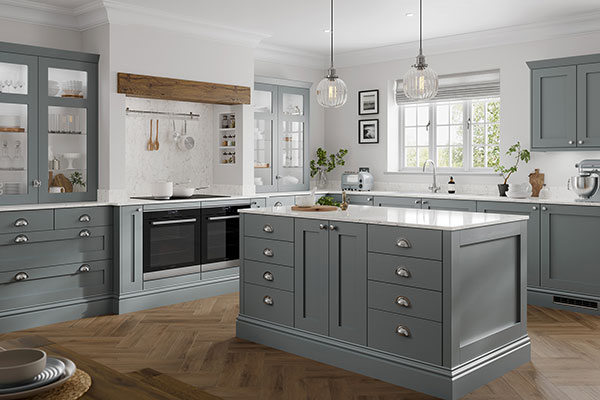Six value share tips for 2024 and beyond
Our columnist Richard Beddard names his best half a dozen share tips for the long term that also have potential to do well over the coming year.
12th January 2024 14:23
by Richard Beddard from interactive investor

It is that awfully difficult time of year again, when my editor wants my best stock picks.
This is a game many financial publications play at the beginning of the year. It means the ones that will go up in price, but I have no idea since my investment process is geared to finding shares that will perform well over a decade or more, not a year.
- Invest with ii: Open an ISA | ISA Investment Ideas | ISA Offers & Cashback
My editor knows this, which explains the addition of “and beyond” to this article’s headline. These are long-term share tips, but I also know of no reason why these shares should perform badly over the coming year.
They might of course; the market in aggregate sets prices, and the market really seems to hate some of my choices. If I am right, and other investors are wrong, then it could still take longer for their opinions to change.
Since my tips are for the long term, it stands to reason that some of last year’s tips will feature again this year. Three do: Churchill China (LSE:CHH), Howden Joinery Group (LSE:HWDN) and Focusrite (LSE:TUNE).
That means three no longer qualify, and I am pleased to say that is because their share prices have gone up, while others in my opportunity set have not. It is not because I have lost confidence in the businesses.
As always, I have used the Decision Engine to make the selection. The Decision Engine ranks shares according to the scores I give them once a year. But that does not mean I just picked the top six. There is always room for judgement, especially when the story might be changing.
My top six picks for 2024 start with Howden Joinery, ranked 2nd by the Decision Engine, and ends with Porvair (LSE:PRV), ranked 10th:
Howden Joinery (HWDN)
Share price:778p
Enterprise value: £4.7 billion
Normalised earnings yield: 6%
Dividend yield: 2.5% (forecast)
Decision Engine rank and [score]: 2 [9/10]
Last scored: May 2023
Howden Joinery Group (LSE:HWDN) makes fitted kitchens (see image below) and sells them to small builders who supply and fit them to their local customers. Unlike you and I, small builders are repeat customers, so this is a relationship business based on Howdens 800-plus local depots.
In the UK, these relationships have turned Howdens into the biggest supplier of fitted kitchens by far. The perhaps distant prospect of blanket coverage here may explain the stealthy expansion of Howdens’ range to other joinery products, and its small but growing and as yet unprofitable, presence in France.
While overseas expansion is often more risky than a domestic roll-out, Howdens’ record in the UK has been extraordinary.
Churchill China (CHH)
Share price: £13.75
Enterprise value: £144 million
Normalised earnings yield: 6%
Dividend yield: 2.6% (forecast)
Decision Engine rank and [score]: 3 [9/10]
Last scored: July 2023
As I type these tips, I am drinking coffee from a Churchill China (LSE:CHH) cup given to me when I attended an Annual General Meeting (AGM) in Stoke more than five years ago. I have dropped this cup from height (accidentally), and it has been through more than a thousand dishwasher cycles, but it looks the same today as the day I unboxed it.
Churchill China supplies the hospitality industry, where plates get a right bashing. The unique qualities of British clay and continuously improving proprietary manufacturing processes allows Churchill China to make tough patterned tableware efficiently. This means it has a good reputation for quality and value in its home market and increasingly in Europe.
Barring a difficult pandemic, when the hospitality industry shut down, I think Churchill China’s profitable growth speaks for itself.
Dewhurst (DWHT)
Share price: 750p
Enterprise value: £35 million
Normalised earnings yield: 20%
Dividend yield: 2.1%
Decision Engine rank and [score]: 4 [9/10]
Last scored: January 2023
Although Dewhurst Group (LSE:DWHT) recently announced it has made less profit for the second year running, I doubt the long-term business fundamentals have changed much.
The company manufactures, assembles, distributes, and fits lift components. Demand can be erratic because it is partially dependent on construction activity. But Dewhurst operates in North America and Australia as well as the UK, and supplies refurbishment and maintenance projects as well as new builds, so downturns in one market are often offset by activity in others.
Traders may be put off by family control, a large pension obligation, small subsidiaries in other industries with indifferent prospects, and a modest compound annual growth rate (CAGR) of about 4% over the last decade or so.
I do not think any of that justifies an earnings yield of 20%, equivalent to a price/earnings (PE ) ratio of about 5. Dewhurst has averaged a 21% return on capital over the last eleven years. It is a conservatively managed stalwart priced like a has-been.

RWS (RWS)
Share price: 246p
Enterprise value: £908 million
Normalised earnings yield: 12%
Dividend yield: 5.1% (forecast)
Decision Engine rank and [score]: 5 [9/10]
Last scored: March 2023
Translator RWS Holdings (LSE:RWS) feels like my most speculative choice. Traders may have two reasons for shunning the share apart from the one they are probably focused on (the share price has been in freefall for a couple of years).
The first is machine translation and potentially large language models like Chat GPT. The former has been disrupting the industry for many years, and the latter may disrupt it further.
The second is the acquisitions RWS has made to grow and diversify the translation niches it serves, and beef-up its own machine translation platform.
RWS’s focus is shifting back towards organic growth as it integrates these new businesses and technologies and works out what to do with them. No doubt this is a tall order, and we can see in the restructuring costs, that it is costly.
Nevertheless, RWS has grown into one of the world’s largest language services providers. It is highly profitable and cash generative, and a normalised earnings yield of 12% values the company as though it were in decline, rather than adapting to meet new challenges.
Focusrite (TUNE)
Share price: 570p
Enterprise value: £349 million
Normalised earnings yield: 7%
Dividend yield: 1.1% (forecast)
Decision Engine rank and [score]: 6 [9/10]
Last scored: December 2023
I have been having a ding-dong (perhaps not so merrily-on-high) discussion with a reader and regular correspondent, LR, over Christmas. They think all the numbers at Focusrite (LSE:TUNE) are drifting in the wrong direction. I do not, principally because the reported profit numbers they are looking at are distorted by acquisition accounting, which I have undone in my calculations.
Focusrite designs audio equipment for musicians, podcasters, and venues. It has also become a stable for respected brands in the music industry.
One thing LR and I agree on though is that Focusrite has spent more than it has earned on acquisitions, developing new products, and paying a dividend in recent years. This is why it has gone modestly into the red.
I do not think the level of debt is problematic, and Focusrite’s financial position should improve - unless it makes more big acquisitions soon.
Porvair (PRV)
Share price: 620p
Enterprise value: £294 million
Normalised earnings yield: 5%
Dividend yield: 1% (forecast)
Decision Engine rank and [score]: 10 [8/10]
Last scored: April 2023
Porvair (LSE:PRV) has a simple, repeatable business model.
It buys companies that make filters. These are small components that protect machines and equipment used in industrial processes, energy generation and transport. They also protect the environment from contamination. Water filters are used in laboratory testing.
These businesses are remarkably steady earners, because filters are critical and need to be replaced at regular intervals.
Long-term, demand for some products will decline as power generation, industry and transport become less dependent on fossil fuels, but equally opportunities are arising in, for example, sustainable aviation fuel (SAF), aluminium, nuclear, and hydrogen, as the economy decarbonises.
Porvair should adapt, as it has over the last two decades, by targeting research and development and acquisitions at applications it expects to become more common.
Richard Beddard is a freelance contributor and not a direct employee of interactive investor.
Richard owns shares in all of the shares mentioned.
See our guide to the Decision Engine and the Share Sleuth Portfolio for more information.
Contact Richard Beddard by email: richard@beddard.net or on Twitter: @RichardBeddard
These articles are provided for information purposes only. Occasionally, an opinion about whether to buy or sell a specific investment may be provided by third parties. The content is not intended to be a personal recommendation to buy or sell any financial instrument or product, or to adopt any investment strategy as it is not provided based on an assessment of your investing knowledge and experience, your financial situation or your investment objectives. The value of your investments, and the income derived from them, may go down as well as up. You may not get back all the money that you invest. The investments referred to in this article may not be suitable for all investors, and if in doubt, an investor should seek advice from a qualified investment adviser.
Full performance can be found on the company or index summary page on the interactive investor website. Simply click on the company's or index name highlighted in the article.
Disclosure
We use a combination of fundamental and technical analysis in forming our view as to the valuation and prospects of an investment. Where relevant we have set out those particular matters we think are important in the above article, but further detail can be found here.
Please note that our article on this investment should not be considered to be a regular publication.
Details of all recommendations issued by ii during the previous 12-month period can be found here.
ii adheres to a strict code of conduct. Contributors may hold shares or have other interests in companies included in these portfolios, which could create a conflict of interests. Contributors intending to write about any financial instruments in which they have an interest are required to disclose such interest to ii and in the article itself. ii will at all times consider whether such interest impairs the objectivity of the recommendation.
In addition, individuals involved in the production of investment articles are subject to a personal account dealing restriction, which prevents them from placing a transaction in the specified instrument(s) for a period before and for five working days after such publication. This is to avoid personal interests conflicting with the interests of the recipients of those investment articles.